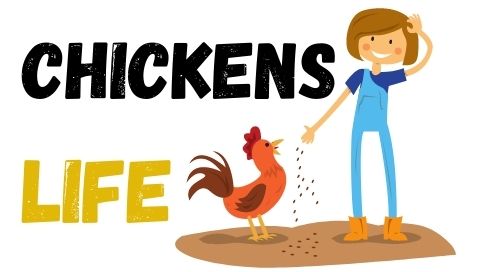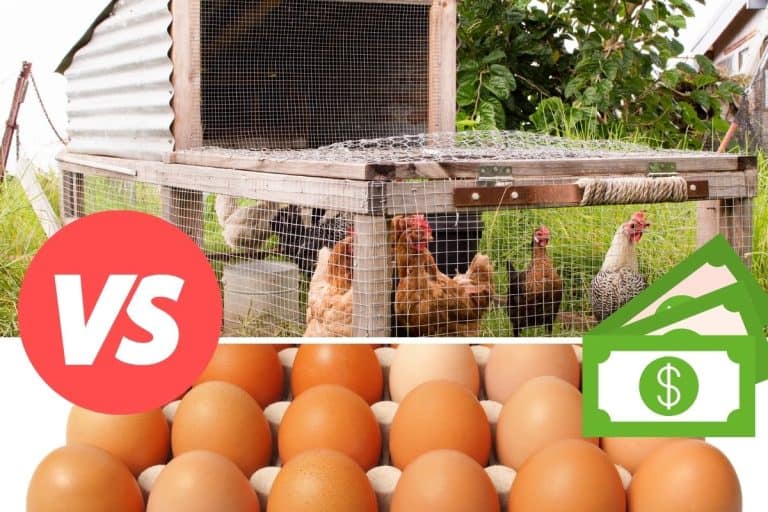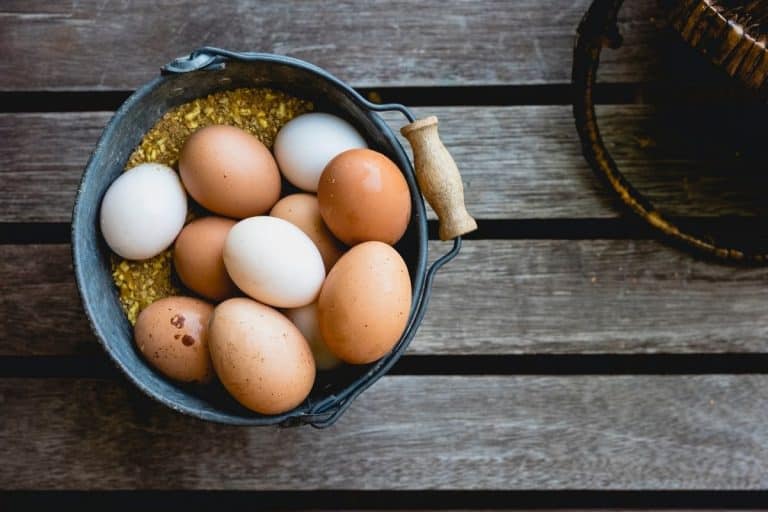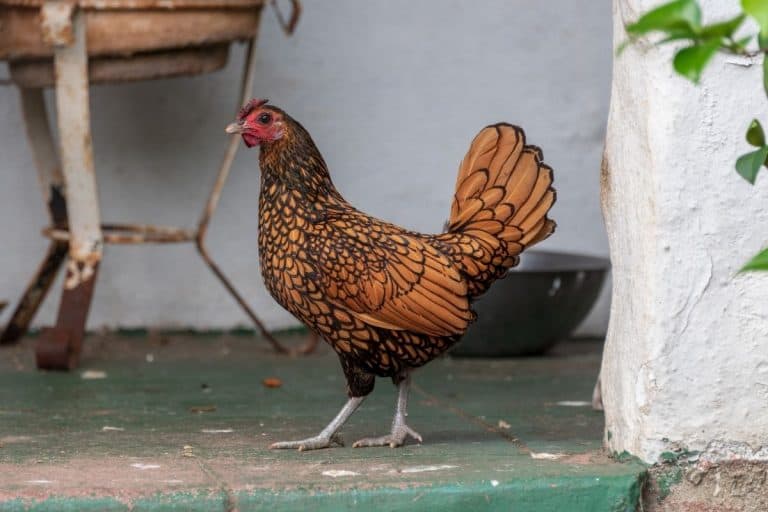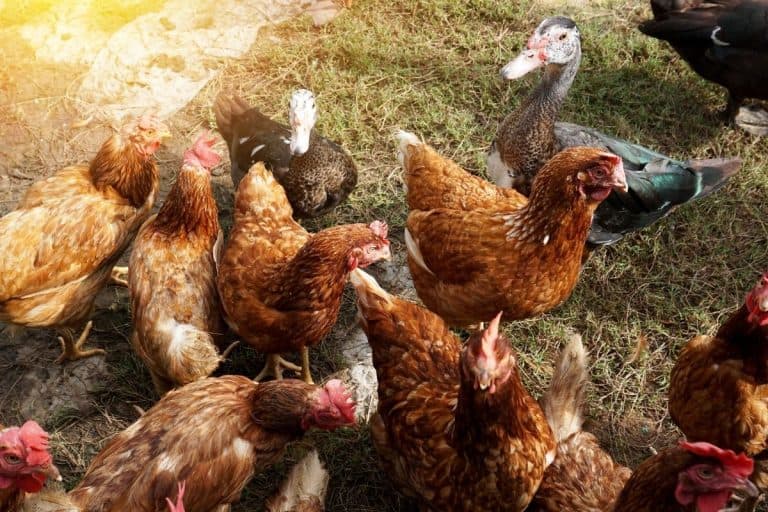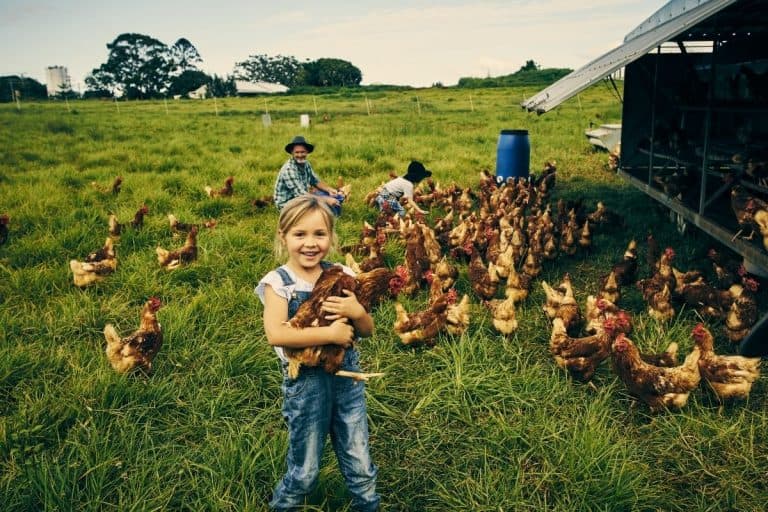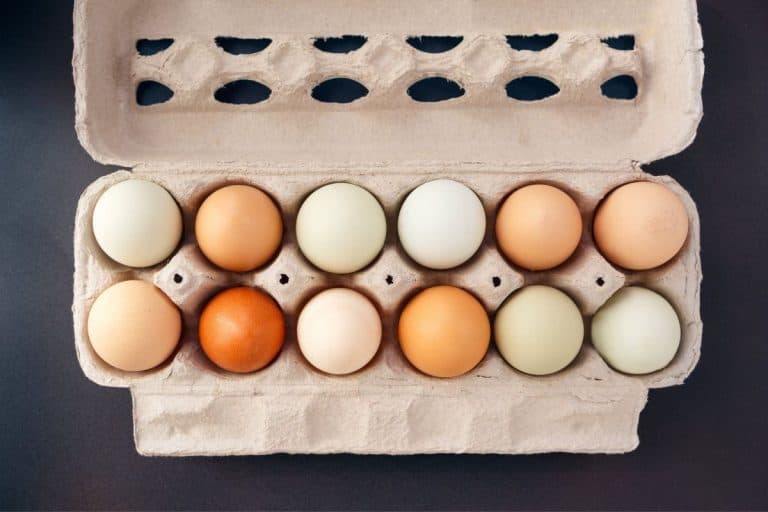Why Don’t Chickens Lay Eggs When It’s Hot? (Tips to help them)
Chickens usually decrease egg production or entirely stop laying when it’s hot. The temperature has a great impact on egg production in chickens. Summer is a difficult time for poultry, but I will give you certain guidelines that will help you maximize egg production even when it’s hot.
Chickens stop laying eggs when it’s hot, mainly due to heat stress (Imbalance between heat production and heat loss). As the internal body temperature of chickens rise, feed consumption drops, leading to poor egg production. The ideal temperature range for laying hens is about 55 °F – 77 °F.
Maintaining high egg production can be a challenging task, especially in summers, so keep reading to know more about egg production in summer and how you can boost it.
Hey chicken buddies: Quick heads-up before going further! I've put together a list of stuff I use and love for my flock. If you're curious about what keeps my hens happy, click here to find out.
Does Egg Production Slow Down In Summer?
As a general rule, eggs production in summer slows down. Summer is a very difficult time for laying hens due to the constant stress of heat.
Chickens not laying eggs in the summer is majorly due to heat stress-induced when the body is gaining more heat and not losing much temperature in return. The rise in the internal temperature of chicken is due to metabolic heat produced by consuming protein-rich feed.
That is the reason why hen will stop eating feed. Hence, no nutrients will be available for producing eggs and the production will drop.
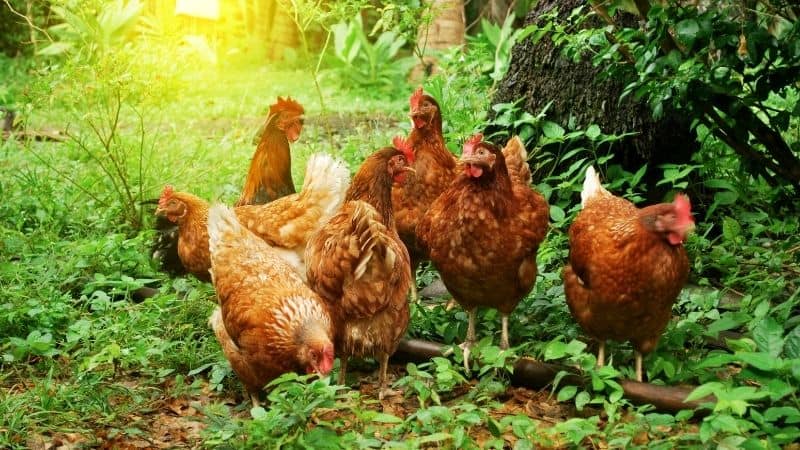
Chickens have no sweat glands in their skin as we do, so they cannot lose heat quickly. Chickens can only evaporate water through their respiratory tract while panting or open-mouth breathing. They breathe in a fast and shallow manner with their mouths open this is known as gular reflux.
The comb and wattles of a chicken act as radiators. Warm blood is sent to comb and wattles and when air passes over them, they dissipate heat from the blood, thus cooling it. Chickens also lose heat by droppings. Failing to lower the body temperature, chickens will become lethargic, production will be lost, and it can even die due to heat shock.
Wait, I have some recommendations for you!
Before you go any further, I want you to take a look at some of the recommendations I've handpicked for you. I think these are essential items you should have for your chickens flock. You can check them out and buy them directly from Amazon.
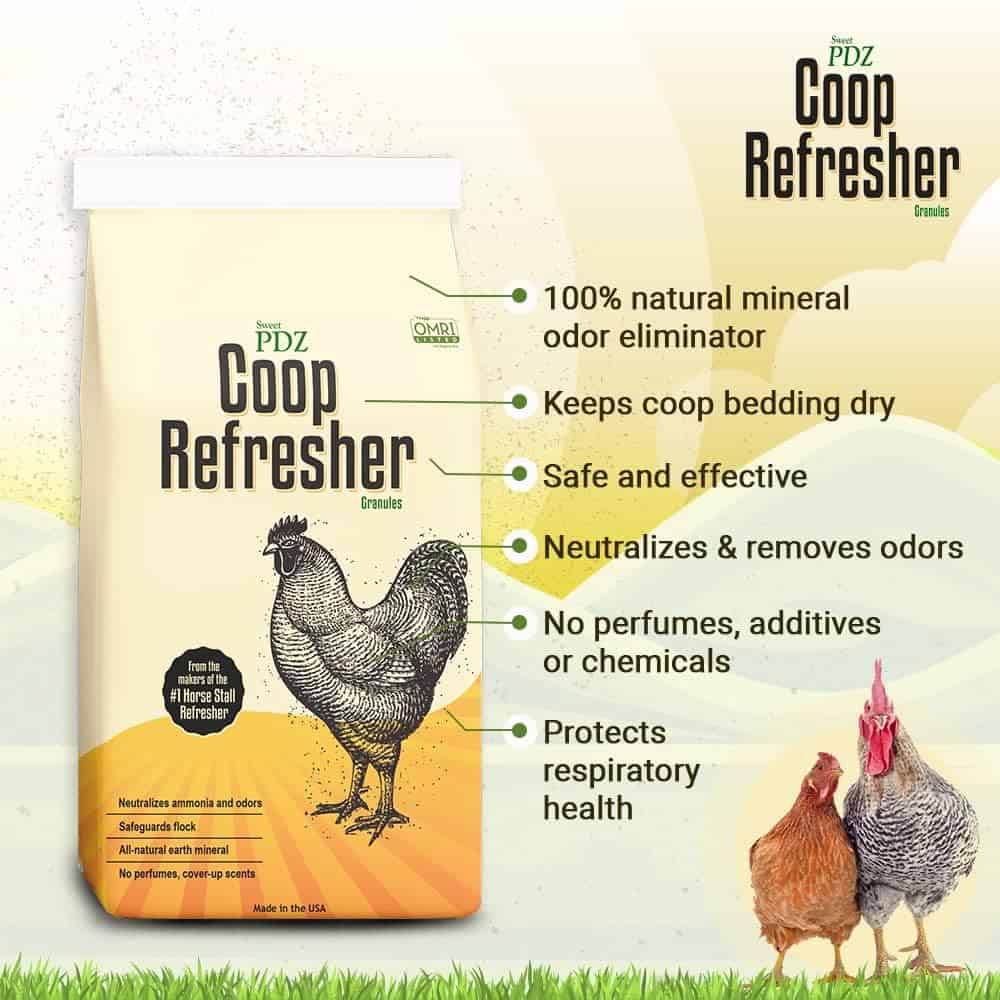 | 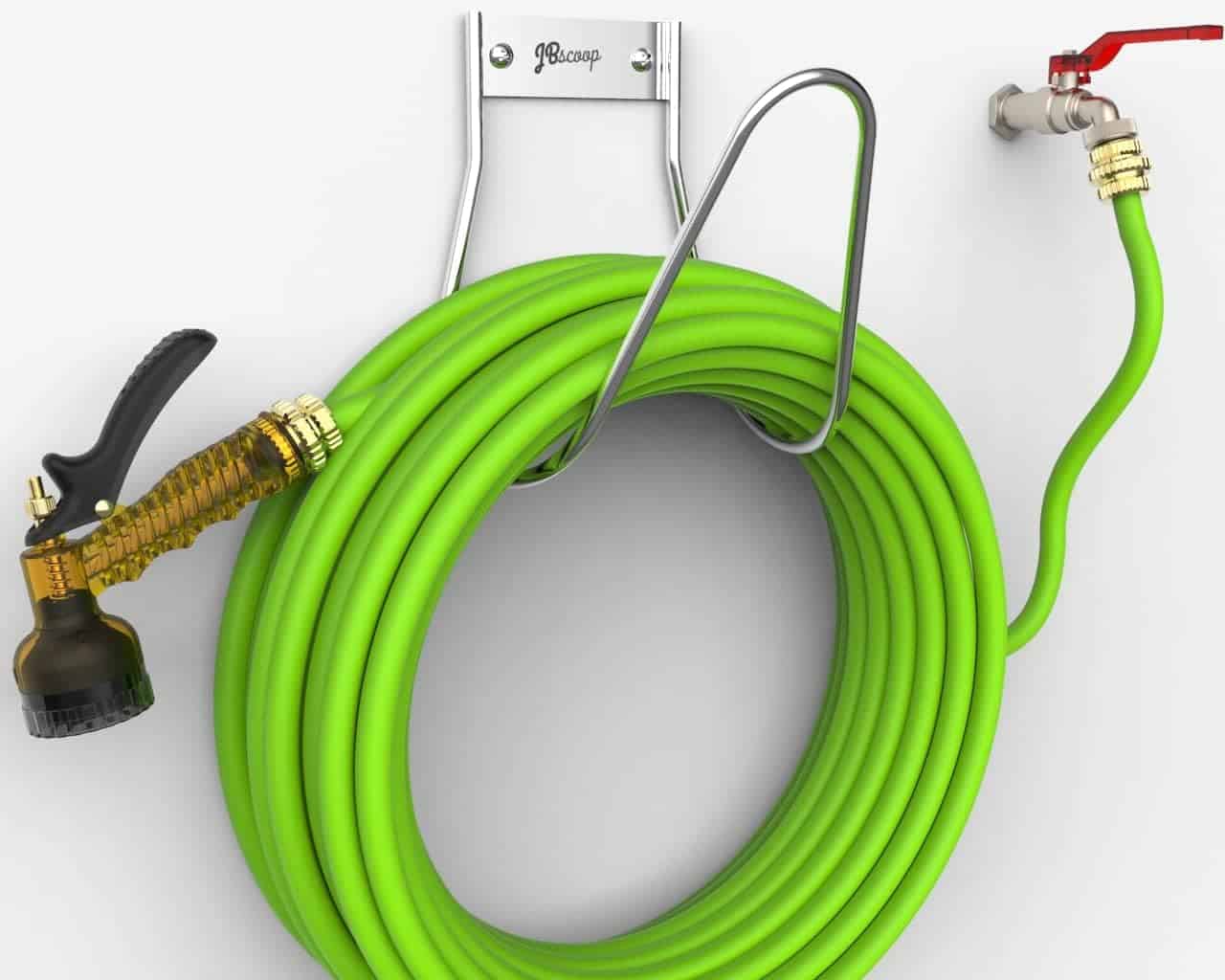 | 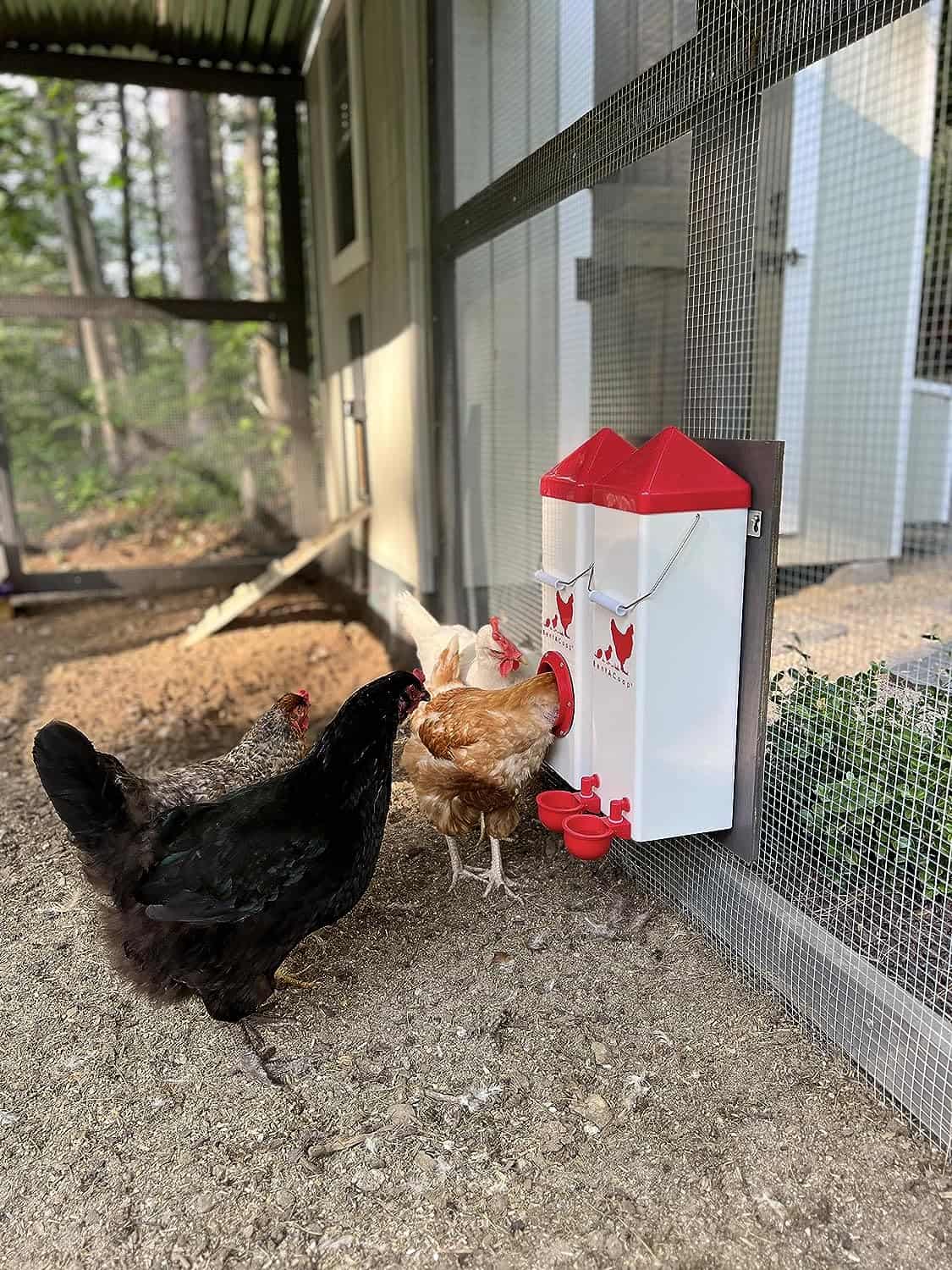 | 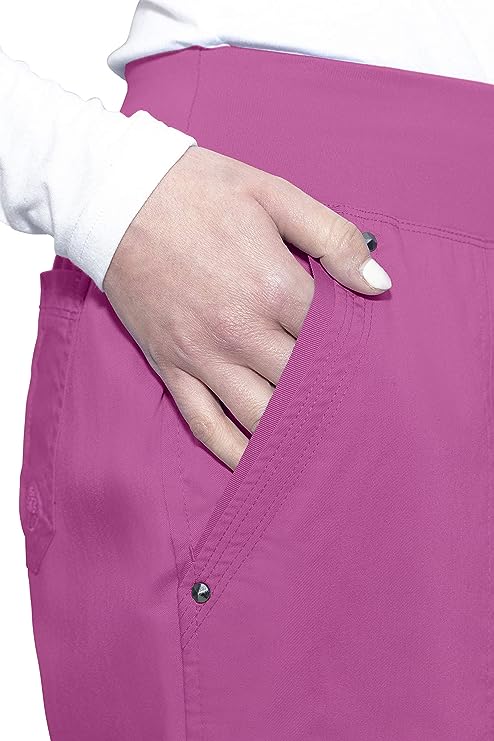 |
| Essential accessory for your coop | No more tripping over hoses! | Predator protection made easy | Comfort + style is possible |
How Hot Is Too Hot For Chickens?
As a general rule, temperature above 90 °F or 32 °C is a serious hazard to laying hens, at this temperature high number of mortalities and huge production losses can be expected.
The comfortable temperature for a laying hen is less than 70 °F.
If laying hens are exposed to the long duration of heat stress, proteins in the blood known as antibodies will start to degenerate. Antibodies are the main components of the immune system which provide immunity against infectious pathogens. Along with dropped production, there will be a risk of infectious diseases in your hens.
All the useful energy required for egg production will be utilized by chickens for maintaining optimum body temperature. Chickens mainly lose heat through conduction (by contact with other surfaces like ground, cage wire, etc), evaporation (by open mouth breathing), convection (by spreading the wings chicken allows air to flow underneath its wings to dissipate heat), vasodilation (sending all the blood to its peripheral organs like subcutaneous capillaries, comb, and wattles).
It also depends upon the genetics of the chicken. Hardy breeds that resist heat and give good egg production are New Hampshire Chicken, Rhode Island Red, Australorp, White Leg Horn, etc.
Why Would Chickens Stop Laying Eggs In Summer?
Heat
We have seen in the previous section, that heat issues is the most common reason why hens stop laying eggs in summer. But it’s not the only one.
Lack of light availability
Decreased light is another possible reason in some countries. Hens require at least 16 hours of light to produce eggs, and in some places, like countries in the north, there may be less light in late summer.
Chickens have a gland known as the pineal gland which secretes melatonin. This gland serves the function of a circadian oscillator in chickens. More light will produce more melatonin, hence increasing egg production.
In places that have less sunlight even in summers, I will recommend you to put artificial lights in the chicken coop until 15-16 hours of light availability is ensured combined with daytime light available to the chickens, doing this will enhance your egg production.
Molting
Molting is another reason why chickens stop laying eggs in summer.
Molting is a naturally occurring phenomenon in chickens, in which they lose their old feathers and start to grow new ones. Molting naturally occurs in late summer, during this period the chicken utilizes all its energy for growing new feathers, and egg production stops or decreases.
If you have free-range chickens that feed on their availability of feed may also be an issue, during hot weather feed sources are limited there are not many plants and insects around. Dehydration can also lead to decreased egg production in summer, so supply adequate water and feed to your chickens to get high production.
Why Do Chickens Lay Poor-quality Eggs When It’s Hot?
When the climate is hot production of eggs slows down in chickens but along with that few eggs that are produced have really poor quality.
Heat stress will not only decrease egg production but will also decrease albumen height, shell quality, and egg weight. When the chicken starts panting, it is hyperventilating to lose heat. Due to this hyperventilation, excessive loss of CO2 gas occurs from the blood. Blood pH will rise, and respiratory alkalosis will occur.
High blood pH decreases the activity of an enzyme known as carbonic anhydrase which reduces the availability of calcium and carbonate ions to the shell gland, hence eggs with poor shell quality will be produced.
Another reason for poor shell quality in summer is the low consumption of calcium in feed, as chickens limit feeding. Due to low consumption of protein and nutrients, albumen quality and egg weight are also affected.
How Can I Increase Egg Production In Summer?

There are plenty of ways you can increase your egg production even when it’s hot. Good management is all that is needed to boost egg production in summer. I will suggest you the following tips for improved egg production in a hot climate:
- Availability of cool water should be ensured at all times. Add ice blocks in the drinkers and increase the frequency of filling the drinkers with fresh water. Drinking cold water will lower the internal body temperature, hence increasing egg production. You can also add vitamins and electrolytes to the drinking water to further enhance egg production.
- Provide shade to the chickens. If there are no trees nearby, build artificial shades. Place the chicken coop in a shady place, for example, beneath a tree. Also, ventilate the coop by adding a fan or air vents. Sometimes these simple management strategies can have a big impact on production.
- Build a rooftop on the coop if it has none. Try to use materials like wood for the rooftop, as they absorb less heat rather than metal.
- Feed your chickens frozen vegetables or fruits, for example, frozen strawberries, watermelon, cucumbers, etc. These will reduce the metabolic heat in the body and provide vitamins and minerals necessary for production. Avoid feeding them high-energy diets like corn and starch. Put the chicken feed in a refrigerator to cool it before giving it to the chickens. Supplements can also be added to the feed for better production.
- Regular cleaning of the coop is extremely important, especially in hot weather. Poultry droppings decompose over time and heat is produced as a result. Also, decrease the amount of litter material, not more than 2 inches deep because litter also traps heat.
- Never transport, handle, or vaccinate a chicken during the hottest time of the day, otherwise egg production will be lost due to stress. The feed should be provided early in the morning and late in the evening to reduce heat stress and boost egg production.
- Build a small pool near the chicken coop. Chickens can keep themselves cool during the hot times of the day by standing in the water and keeping their feathers wet. A mud puddle is also a good way to keep chickens cool. Sprinklers or misters can also be used for lowering the environmental temperature around the chicken coop. As fine water droplets evaporate, they produce a cooling effect.
In a nutshell
- Chickens reduce egg production when it’s too hot in summer.
- Heat stress can lower feed consumption, hence reducing egg production.
- 55 °F – 77 °F is the ideal temperature range for laying hens.
- Egg quality is also disturbed when it’s hot.
- Temperature above 90 °F will induce heat stress.
- Molting and daytime light also affect egg production in summer.
- Good water, feed, and housing management can reduce heat stress and enhance egg production in summer.
Essential Tools for Chicken Owners
Check my curated list of essential products!
I’ve gathered all the best products that have helped me with raising my chickens, so you don’t waste time on bad ones.
Find my complete list of recommendations here.
For more tips, guides, and recommendations, you should definitely subscribe to my newsletter.
Use the form below, it’s free.

